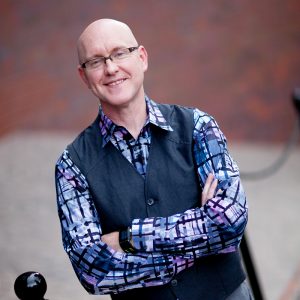Statler Brothers’ Class of ’57
10/16/13 / Kevin Raines
Four decades ago, the Statler Brothers won a Grammy for their song “The Class of ‘57”. I heard it the other day, and it’s a great song. Via the magic of Youtube, here it is if you’d like a listen:
It’s also an interesting song if you’re into demographics, because the lyrics provide a little non-scientific insight into the economy and work force of the Class of 1957. Have a quick read.
Tommy’s selling used cars, Nancy’s fixing hair,
Harvey runs a grocery store and Margaret doesn’t care.
Jerry drives a truck for Sears and Charlotte’s on the make,
And Paul sells life insurance and part time real estate.Helen is a hostess, Frank works at the mill,
Janet teaches grade school and prob’ly always will.
Bob works for the city and Jack’s in lab research,
And Peggy plays the organ at the Presbyterian Church.And the class of ’57 had its dreams,
Oh, we all thought we’d change the world with our great words and deeds.
Or maybe we just thought the world would change to fit our needs,
The class of ’57 had its dreams.Betty runs a trailer park, Jan sells Tupperware,
Randy’s on an insane ward, Mary’s on welfare.
Charlie took a job with Ford, Joe took Freddie’s wife,
Charlotte took a millionaire, and Freddie took his life.John is big in cattle, Ray is deep in debt,
Where Mavis finally wound up is anybody’s bet.
Linda married Sonny, Brenda married me,
And the class of all of us is just a part of history.And the class of ’57 had its dreams,
But living life from day to day is never like it seems.
Things get complicated when you get past eighteen,
But the class of ’57 had its dreams.
Oh, the class of ’57 had its dreams.
A lot of these jobs still exist, of course, and prob’ly always will. Teachers, personal service providers, truck drivers, government workers, and more. So has anything changed?
Our access to census data is missing with the federal shutdown, but we have some good Colorado data, and we calculated the number of people working in different occupations in Colorado. Retail salesperson is the #1 occupation in the state, so we’ve got Tommy and Jan covered. And “Miscellaneous Managers” at #2 probably covers Harvey and Betty. Jerry’s driving job falls at #7, and Janet’s teaching comes in at #8. So much of the Class of ’57 worked at jobs that have withstood the test of time.
Other jobs are less common, but still thriving. Helen’s hostess job comes in at #27, Nancy’s hair styling gig is #56 on the list, and Paul’s life insurance job comes in at #72. Depending on his specialty, Jack’s occupation could range from #127 (Miscellaneous Physical Scientist) to #431 (Agriculture and Food Scientist).
Farther down the list, John is in a niche field, and his supervisory job in agriculture is ranked #314 among Colorado occupations. Frank at the mill might be a little concerned for his job today, as millwrights come in at #386, and I suspect they’re less common now than they were back in his day.
Perhaps more interesting are the modern jobs that are missing from the Class of ’57. Some of Colorado’s most common occupations today didn’t exist in significant numbers for the class of ’57, such as Customer Service Representatives (#5 today), Home Health Aides (#16), and software developers (#24). Perhaps Mary can get some training for one of those positions so she can get off welfare.
On a sociological note, another common occupation these days is child care worker (#22 on the list). This field has grown over the past half-century due in large part to the increasing participation of women in the workforce, and probably didn’t exist in appreciable numbers in 1957. If we revisit the lyrics, it looks like the workforce participation rate of the women of the Statlers’ Class of ’57 is below 50%, depending on how you count a few of them. With the modern female labor force rate exceeding 72 percent for working-age women, we would likely see a few of them working in software or child care these days instead of playing the organ or becoming homemakers.
However, in the end we certainly can’t fault Charlotte’s strategy of being “on the make” and subsequently marrying a millionaire. Because hey, we can’t all be big in cattle.
